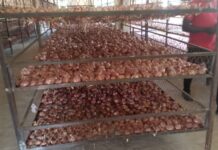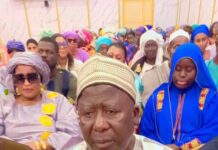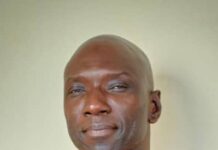Basidia M Drammeh
Now that the parliamentary election is done and dusted, it’s incumbent upon us, as Gambians, to reflect on the election’s outcome and the way forward.
The outcome of the legislative election has undoubtedly sent shockwaves across the nation and beyond amid a general perception that the polls would be swept by the ruling National People’s Party (NPP), which has heavily invested in the election to consolidate its power following the December presidential election. Aside from the enormous financial resources pumped into the process, the Party Leader and Secretary-General President Adama Barrow embarked upon a nationwide tour to introduce the Party’s parliamentary aspirants to the electorate and threw his weight behind them to ensure that the Party secured a considerable majority in the next Parliament to facilitate the passage of his legislative agenda without hindrance.
In contrast, the United Democratic Party, the NPP’s main rival which came second by winning 15 seats, has been reeling from its upset defeat in the presidential elections, with many members feeling demoralized; hence the expectations were low regarding its performance in the parliamentary polls compared to its strong showing in the 2017 legislative polls.
Though the voter turnout was relatively low estimated at 51.2%, probably due to fasting and sweltering heat, the election yielded a diversified Parliament with no single party holding an absolute majority, which guarantees that we will not have a rubber-stamp legislative body that would dance to the tune of the Executive regardless of the country’s supreme interests. With democracy taking root in the Gambia, we need a solid, strong, and authoritative National Assembly to fully perform its oversight duties, ensuring that the Executive is kept in check. The MPs should put aside their party colors and endeavor to make the Gambia a better place for its citizenry and residents. The draft Constitution set to usher in the Third Republic was reportedly killed by President’s allies in Parliament, including 8 UDP members who were expelled from the Party for switching their allegiance to President Adama Barrow. Interestingly five of those MPs lost their seats in the parliamentary polls.
Some observers see the shocking outcome of the polls as a referendum on the President’s popularity and a vote of no confidence against President Barrow, who has won the December presidential election with a landslide. Are the voters disgruntled with his Administration barely four months after his landslide victory? Probably, yes. Gambians have been going through hard times amid high fuel and commodity prices. His proponents, nevertheless, argue that the skyrocketing prices are a global trend; hence the Gambia is no exception. However, the Government has done so little to come up with practical measures to cool down the prices, such as lowering taxation, particularly for low-income earners. Instead, the Government has always insisted that the Gambia has a liberal-market system which prevents the Government from controlling the prices. Besides, electricity and water supplies are largely erratic, scarce, and unaffordable to many Gambians.
On the other hand, the Gambian leader is seen mainly as soft on combating rampant corruption. That might explain why some voters have turned their backs on the president they have overwhelmingly voted for barely a few months ago. The ruling party has failed to secure any seats in the country’s urban areas, raising questions about the popularity of the nascent party. NPP must have been involved in deep soul searching to determine where it all went wrong!
The parliamentary election probably spells the demise of the longstanding People’s Progressive Party (PPP), which led the country into independence and dominated the country’s political landscape until Jammeh deposed it in 1994. PPP’s rival during Jawara’s time, National Convention Party (NCP, has met a similar fate for both parties. Gambia Democratic Progress (GDC) and Gambia Moral Party (GMC) failed to win a single seat. While GMC never won a parliamentary seat, GDC did in the last election but abysmally failed to retain or secure any seat. The People’s Democratic Organization for Independence and Socialism (PDOIS) won two seats, but its founding member and respected statesman Sidia Jatta has failed to retain his seat, hence spelling his political demise. Having said that, I’d love to see him taking up an advisory role, given his vast knowledge and wide experience. Citizens Alliance (CA) and Gambia For all (GFA) which are new entrants have made no headway.
The APRC faction supported by former President Yahya Jammeh swept the polls in Foni, indicating that the former strongman remains a force to reckon with in the Foni region.
The Independents have won significant seats; hence their vote would be crucial in the next Parliament.
With the parliamentary election now behind us, observers are eyeing the formation of a new Cabinet by President Barrow, who has refrained from naming his Cabinet in anticipation of the election results. It’s debatable whether the strategy worked in favor of President Barrow or against him, as some commentators have argued that the President’s inability to secure a formidable majority in Parliament owes to his failure to name a Cabinet to deal with the challenges facing the nation.
At any rate, the new National Assembly must assert its authority as dictated by the Constitution without fear or favor. They should develop pieces of legislation that serve the interests of the nation and put it on a trajectory of progress and prosperity. The elected MPS should listen to the electorate who voted for them to turn things around.
Meanwhile, the President ought to institute a competent, merited, harmonious and effective Cabinet to address the country’s myriad challenges, particularly the skyrocketing prices, and provide basic amenities such as electricity and water. Besides, the President should appoint competent and merited advisors who would advise him in their areas of expertise and make him hear what he needs to hear and not what he wants to hear.






